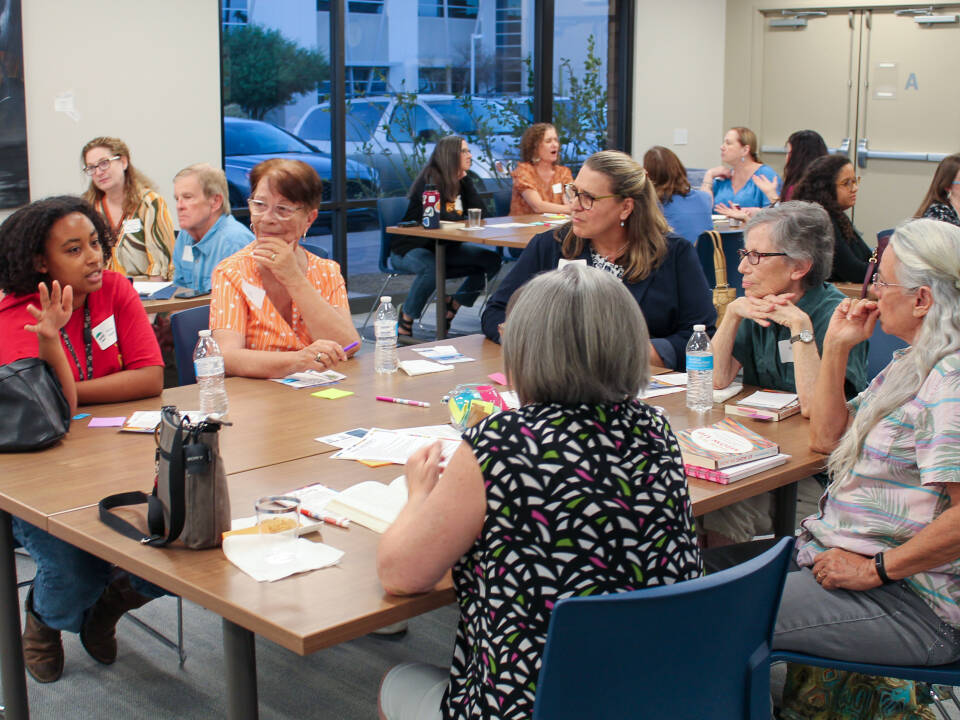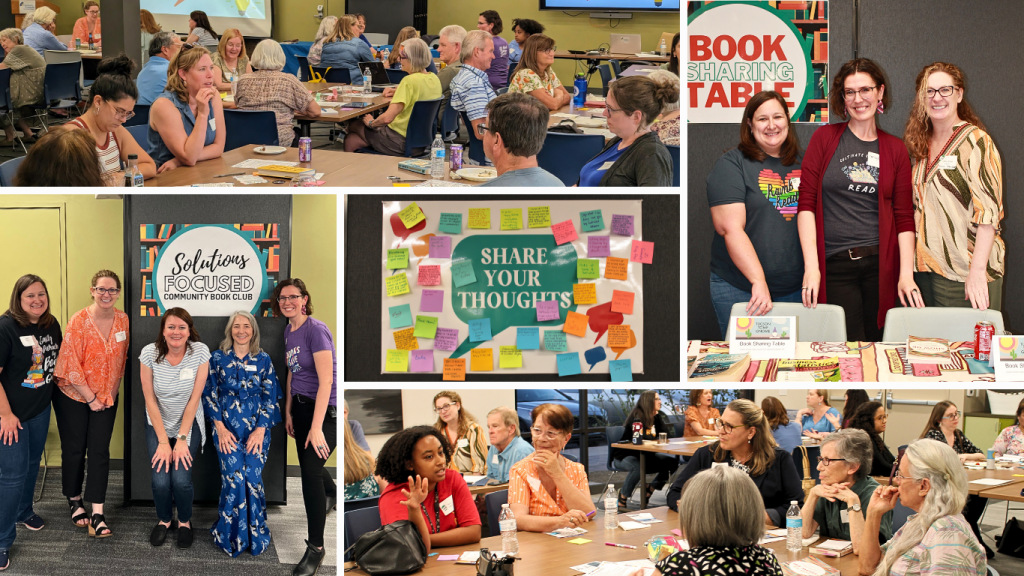The Solutions-Focused Book Club was created to bring together interested community members from all walks of life to bond over a shared desire to make our community better for all – and be inspired by a shared reading experience!
The Community Foundation for Southern Arizona is proud to partner with the Tucson Tome Gnome and Tucson Agenda co-founder Caitlin Schmidt to host these book clubs to bring together the community and spark conversation. We can’t promise we can solve all the world’s (or Southern Arizona’s) problems, but we can connect, learn from each other, and build momentum toward positive change.
Are you a reader who cares about building a vibrant and equitable community in Southern Arizona? If so, this book club is for you!
What are we reading next?
What: Disability Visibility by Alice Wong
When: May 23, 2024 | 5:30 to 7:00 PM
Where: Community Foundation Campus
Click here to learn more and RSVP!
Previous Book Clubs
Fire has been a partner in our evolution for hundreds of millennia, shaping culture, civilization, and, very likely, our brains. Fire has enabled us to cook our food, defend and heat our homes, and power the machines that drive our titanic economy.
In May 2016, Fort McMurray, the hub of Canada’s oil industry and America’s biggest foreign supplier, was overrun by wildfire. The multi-billion-dollar disaster melted vehicles, turned entire neighborhoods into firebombs, and drove 88,000 people from their homes in a single afternoon.
John Vaillant’s book Fire Weather takes us on a riveting journey through the intertwined histories of North America’s oil industry and the birth of climate science, to the unprecedented devastation wrought by modern forest fires and into lives forever changed by these disasters.
From the author of Me Before You, set in Depression-era America, a breathtaking story of five extraordinary women and their remarkable journey through the mountains of Kentucky and beyond.
Alice Wright marries handsome American Bennett Van Cleve, hoping to escape her stifling life in England. But small-town Kentucky quickly proves equally claustrophobic, especially living alongside her overbearing father-in-law. So when a call goes out for a team of women to deliver books as part of Eleanor Roosevelt’s new traveling library, Alice signs on enthusiastically.
The leader, and soon Alice’s greatest ally, is Margery, a smart-talking, self-sufficient woman who’s never asked a man’s permission for anything. They will be joined by three other singular women who become known as the Packhorse Librarians of Kentucky.
What happens to them- and to the men they love- becomes an unforgettable drama of loyalty, justice, humanity, and passion. These heroic women refuse to be cowed by men or by convention. And though they face all kinds of dangers in a landscape that is at times breathtakingly beautiful, at others brutal, they’re committed to their job: bringing books to people who have never had any, arming them with facts that will change their lives.
Based on a true story rooted in America’s past, The Giver of Stars is unparalleled in its scope and epic in its storytelling. Funny, heartbreaking, enthralling, it is destined to become a modern classic–a richly rewarding novel of women’s friendship, of true love, and of what happens when we reach beyond our grasp for the great beyond.
As an activist and author, Mia Birdsong’s work is centered around building more equitable, just, and healthy communities. In her new book, How We Show Up, Mia talks about how building these strong communities requires all of us to rethink our relationships with the people around us.
It seems counterintuitive that living the “good life”–the well-paying job, the nuclear family, the upward mobility–can make us feel isolated and unhappy. The author discusses that we are already kept apart by injustices relating to gender differences, poverty, racial inequality, differences in values, political belief, religious and spiritual differences, but the real disconnection is with the choice we often make to be independent of others without realizing that we are an interdependent species.
We asked participants how they showed up in their community. Click here to learn more about what they had to say!
Widower Mukesh lives a quiet life in Wembley, in West London after losing his beloved wife. He shops every Wednesday, goes to Temple, and worries about his granddaughter, Priya, who hides in her room reading while he spends his evenings watching nature documentaries.
Aleisha is a bright but anxious teenager working at the local library for the summer when she discovers a crumpled-up piece of paper in the back of To Kill a Mockingbird. It’s a list of novels that she’s never heard of before. Intrigued, and a little bored with her slow job at the checkout desk, she impulsively decides to read every book on the list, one after the other. As each story gives up its magic, the books transport Aleisha from the painful realities she’s facing at home.
When Mukesh arrives at the library, desperate to forge a connection with his bookworm granddaughter, Aleisha passes along the reading list…hoping that it will be a lifeline for him too. Slowly, the shared books create a connection between two lonely souls, as fiction helps them escape their grief and everyday troubles and find joy again.
What do you have on your reading list? Click here to see what our participants told us what they are currently reading!
Journalist Mónica Guzmán is the loving liberal daughter of Mexican immigrants who voted—twice—for Donald Trump. When the country could no longer see straight across the political divide, Mónica set out to find what was blinding us and discovered the most eye-opening tool we’re not using: our own built-in curiosity.
Partisanship is up, trust is down, and our social media feeds make us sure we’re right and everyone else is ignorant (or worse). But avoiding one another is hurting our relationships and our society.
In this timely, personal guide, Mónica, the chief storyteller for the national cross-partisan depolarization organization Braver Angels, takes you to the real front lines of a crisis that threatens to grind America to a halt—broken conversations among confounded people. She shows you how to overcome the fear and certainty that surround us to finally do what only seems impossible: understand and even learn from people in your life whose whole worldview is different from or even opposed to yours.




